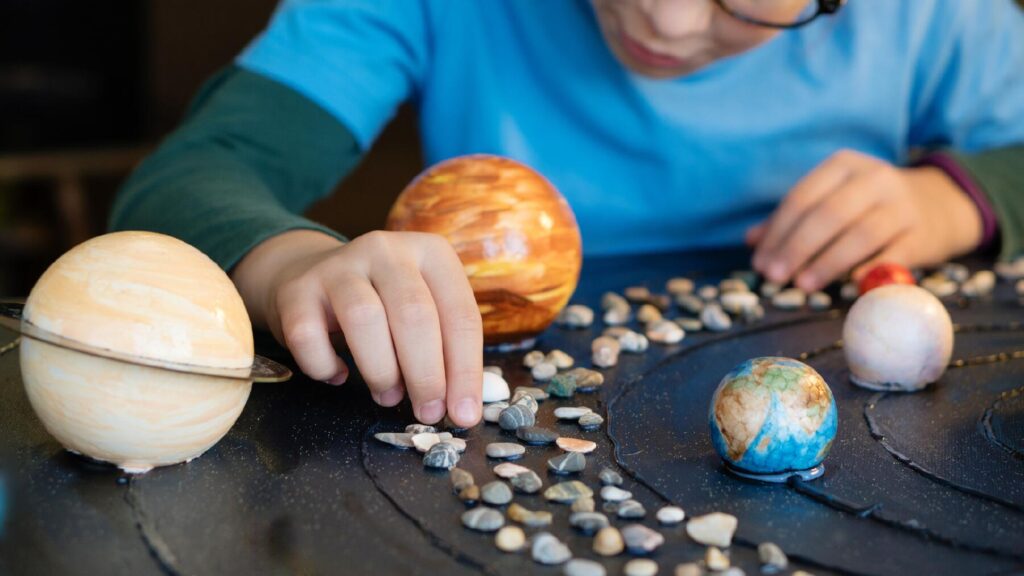The Solar System Project is all about assisting people to learn more about space and other planets. This is a big effort to explore and understand everything in our solar system, like the Sun, planets, moons, and more.
Solar project wants to encourage people to ask questions and get more knowledge about space. It does this by conveying information, doing research, and involving the people. The goal of the solar system projects is for people to want to know about entire planets in space. Solar system project is a project in which we organize the solar system & all the planets present in it as well as the Sun. Knowing about the order of the planets is very significant.
Additionally, the Solar System Project is willing to showcase the amazing potential of solar power energy. By using the Sun’s energy through solar panels, we can easily generate electricity power. Also, we can use this solar energy continuously. Solar projects are important because they help us use less harmful fossil fuels. This solar project wants to tell more people about why solar energy is good. It wants to inspire people to use renewable energy sources like solar power. This way, we can make the future better and protect the environment.
Solar System Project Ideas for Students
1. Planetary Exploration Missions
Help with missions to explore planets, moons, and other space things in our solar system. We’ll collect important information and pictures.
2. Educational Programs
Make things like books, classes, and fun events to teach people about space and the solar system.
3. Solar Energy Advocacy Campaigns
Tell everyone why using the sun’s energy is great. Let’s use more solar power to help the planet.
4. Space Art and Outreach Events
Have art contests and shows, or gatherings where we look at stars, to make people excited about space.
5. Astronomical Research Collaborations
Work with scientists and groups to study things like planets, rocks, and air in space.
6. Spacecraft Design Challenges
Make contests for students and engineers to create cool space machines for exploring the solar system.
7. Virtual Reality Experiences
Make cool virtual reality games and shows where you can pretend to travel in space and see what it’s like.
Creating a Solar System Model
The below mentioned materials required for preparing the solar project.
- Glue
- A sheet of cardboard
- Water Colours
- Foam balls/balls of different sizes
- Additional card sheets for place the balls
Steps to Create a Solar Project
Step 1: Paint the cardboard black and let it dry for next process.
Step 2: Paint balls based on the Planets colours and sizes.
Step 3: Put a big yellow ball in the center as the Sun.
Step 4: Place each planet ball in order from the Sun.
Step 5: Add a ring around Saturn using cardboard. Also, add white pieces between Mars and Jupiter for the asteroid belt.
Step 6: Glue everything onto the cardboard. Your solar system project is done.
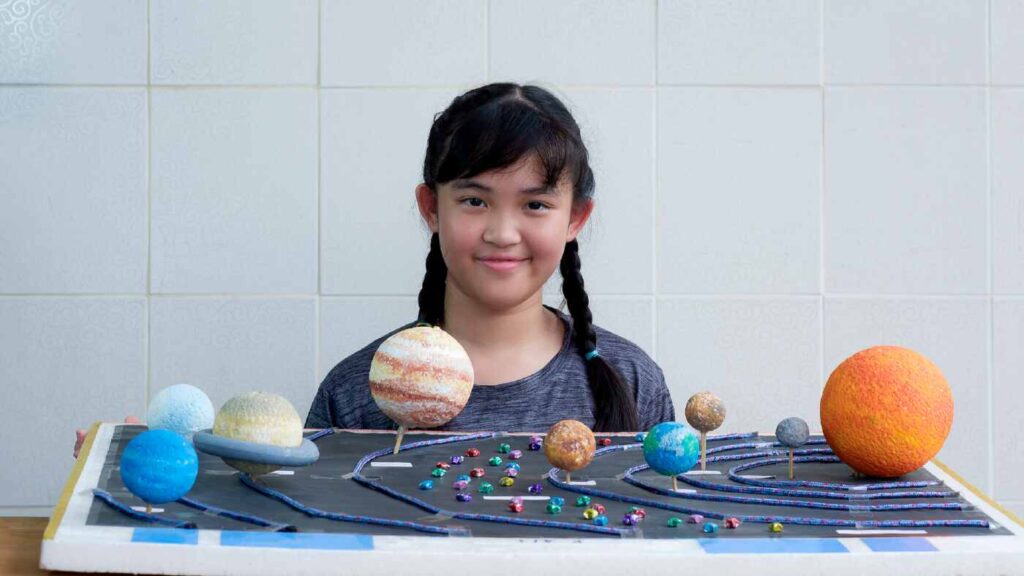

Benefits of the Solar System Project
A Solar System Projects can substantially reduce energy costs. With every passing year there is an increasing need for energy, and we have seen countries in Europe, especially Germany shoot up their energy costs in the event of a global energy crisis. In this section, we will see the benefits of Solar System Project which is a very good renewable energy.
There are many benefits of Solar System Project which include better ROI, low maintenance costs, subsidies by Governments, etc. Once the solar panels are set up, they don’t need maintenance as long as they are brand new. But with time, they will need regular cleaning to ensure there are no dust settlements which could affect the efficiency of these panels. Regular cleaning of these panels will ensure that the solar energy the panels can trap is always optimized.
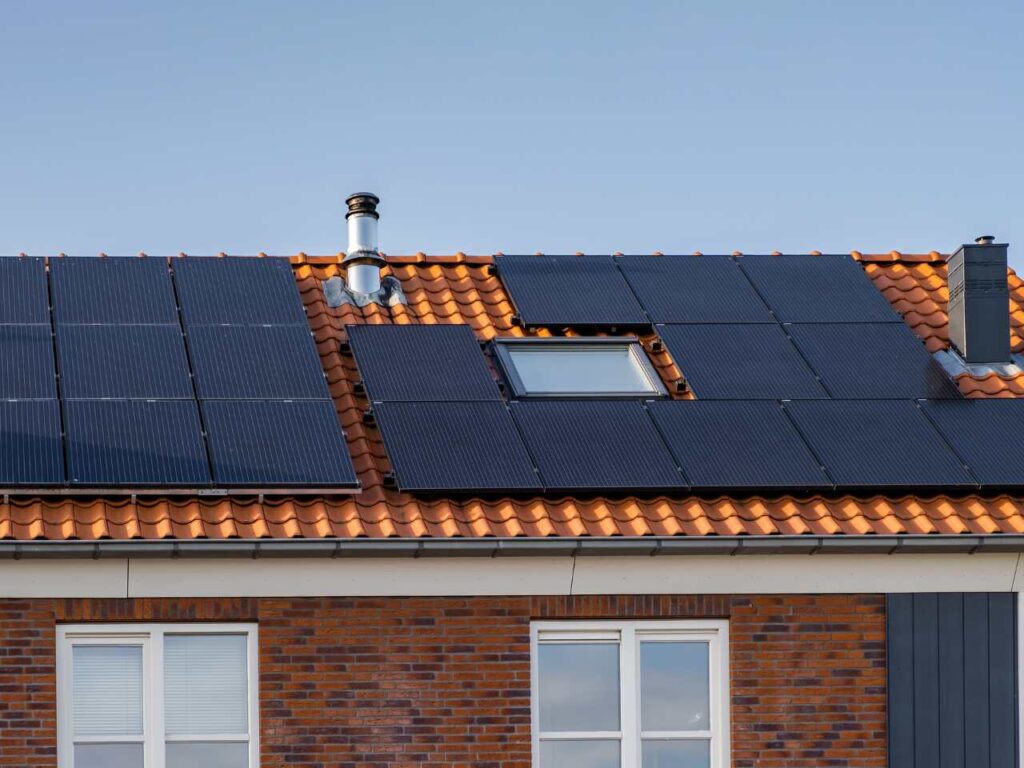
There is a couple of instances of interesting solar power projects in the state of Gujarat, India. One instance is where solar panels have been installed right over a water canal of Narmada river. This interesting engineering feat not only produces energy but also reduces water losses due to evaporation in the canal, and keeps the panels cool. So, this project reaps three benefits out of one work.
Size of the Planets
Here’s the order of the planets based on their sizes from biggest to smallest.
Mercury : 3,457 km diameter
Mars : 6,792 km diameter
Venus : 12,104 km diameter
Earth : 12,756 km diameter
Neptune : 49,528 km diameter
Uranus : 51,118 km diameter
Saturn : 120,536 km diameter
Jupiter : 142,984 km diameter
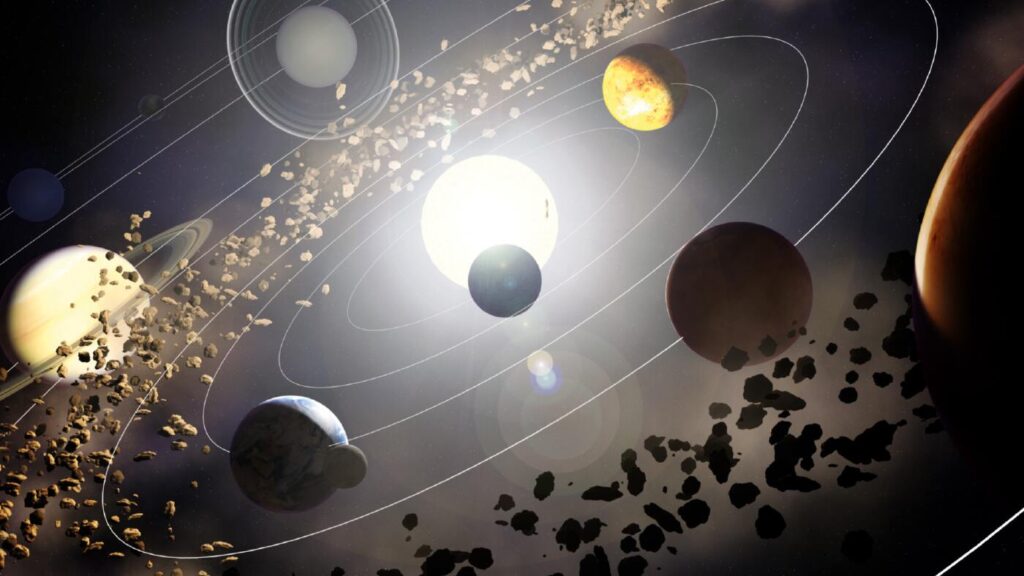
Colour of the Planets
The colours of the planets are mentioned as follows:

Mercury : Grey
Venus : Brown and grey
Earth : Green, blue, brown, and white
Mars : Red, brown, and tan
Jupiter : Orange, brown, tan, and white
Saturn : Blueish-grey, golden, and brown
Uranus : Bluish-green
Neptune : Blue
Dwarf Planets in Our Solar System
The below mentioned, Officially recognised dwarf planets in our Solar System.
1) Pluto
2) Ceres
3) Makemake
4) Haumea
5) Eris
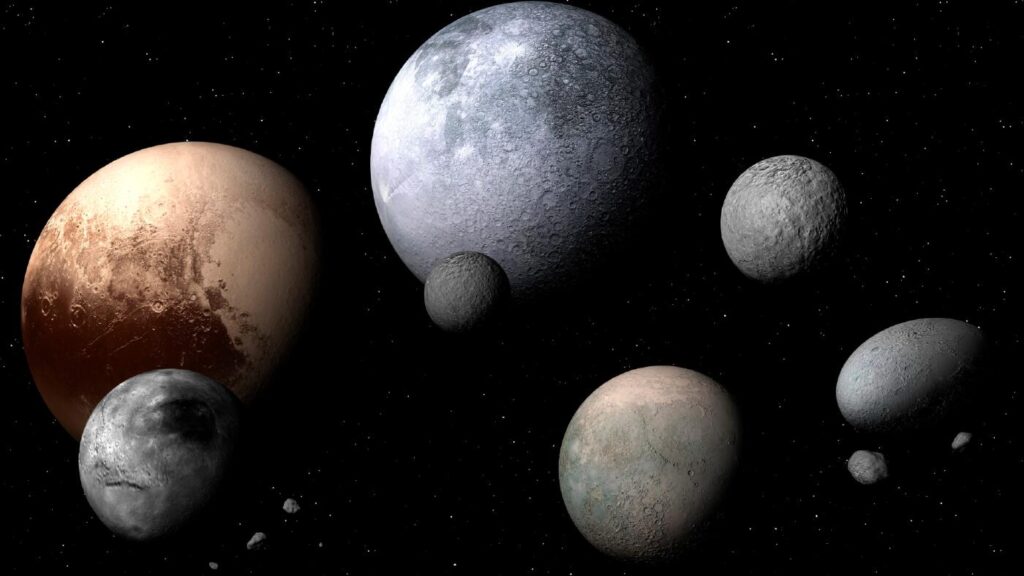
Uses of Solar Energy
The use of solar energy greatly reduces long-term utility costs like gas and electricity. They are renewable energy sources that have applications in the following areas.
Industrial Applications:
Thermal energy from the sun supplies electricity to warehouses, offices, and factories. Even radio and television stations are solar-powered.
In airplanes, solar energy powers warning lights, and beacons also use solar energy.
Remote Applications:
Remotely located places like schools, hospitals, buildings, and clinics can also benefit from electricity generated by solar energy.
Transportation:
Public transport includes light-rails, buses, and trolleys that use solar power.
Pool Heating:
In winter, solar energy is used to heat swimming pools.
Residential Application:
Solar energy is also used to generate electricity in all the residential complexes and big apartments. Which is very useful for save their electricity power.
Five Types of Solar?
1) Solar Photovoltaic (PV) Systems
2) Solar Thermal Systems
3) Solar Water Heating Systems
4) Concentrated Solar Power (CSP) Systems
5) Solar Air Heating Systems
Three Types of Solar Power Systems
1) On-Grid: Connected to the utility grid for power exchange.
2) Off-Grid: Independent, not reliant on external power sources.
3) Hybrid: Combines grid-tied and off-grid elements.
Top 10 Country That Produce the Most Solar System Power
The use case of solar energy is increasing worldwide. Based on solar system education nowadays all countries are using solar energy systems for their electricity usage. Here we list the top 10 countries that produce the most energy in the solar system.
The government support and take initiatives related to solar energy across different countries. So that in upcoming year’s solar energy systems usage will increase.
Many countries have shut down their nuclear power projects, bearing in mind the need to produce clean energy moving forward. A solar system project consists of an arrangement of solar panels, which can be used to trap sunlight & convert it into electrical energy and save the energy as well. The simple math here is, the more the panels face the sun, the more the energy. Hence, these panels come with a mechanism to tilt as the Sun ascends the sky.
|
Rank |
Country |
Solar Capacity (MW) 2022 |
|
1 |
China |
393,032 |
|
2 |
United States |
113,015 |
|
3 |
Japan |
78,833 |
|
4 |
Germany |
66,554 |
|
5 |
India |
63,146 |
|
6 |
Australia |
26,792 |
|
7 |
Italy |
25,083 |
|
8 |
Brazil |
24,079 |
|
9 |
Netherlands |
22,590 |
|
10 |
South Korea |
20,975 |
Governments have started to encourage their citizens to convert to solar power. They have announced a subsidy to, those who install solar panels. In India already many peoples have started to install solar panels in an effort to reduce their electricity bills. Street lights have solar panels for their own electricity needs. These are efforts taken by the Governments keeping in mind the many benefits of Solar System Project.
Another instance is where Gujarat has been setting up various Solar Parks that are capable of generating over 100 MW. This energy can satiate both domestic and industrial needs. The solar park that is going to come up in Dholera can generate 5 GW by 2030. With this, India would very soon in the future be an example for producing clean energy. See below listed a few government initiatives for your reference.
National Portal for Rooftop Solar (India):
Streamlining solar adoption process for homeowners.
Providing comprehensive information and resources for businesses.
PM Surya Ghar: Muft Bijli Yojana (India):
Ensuring free electricity for rural households.
Reducing dependence on traditional energy sources.
Solar Investment Tax Credits (United States):
Making solar systems more affordable for individuals.
The government Encourages business owners to invest money in solar energy projects.
Feed-in Tariffs (Germany):
Guaranteeing stable income for solar power producers.
Fostering growth in the renewable energy sector.
Renewable Energy Targets (Australia):
This could encourage solar projects and infrastructure.
Encouraging the sustainability & lowering greenhouse gas emissions.
Solar Subsidies (China):
Increasing accessibility of solar energy for individuals.
Supporting growth of solar industry through incentives.
Advantages and Disadvantages of Solar System Energy
Due to available solar panel subsidies and increasingly competitive prices in the market, solar energy has become an important source of energy for more households. Technology has improved greatly in the past years, complemented by solar cell storage systems, making solar energy a significant source of clean energy. However, solar battery prices are something to think about.
However, regardless of the energy source you choose to analyze, there are always drawbacks. The main advantages and disadvantages of solar system Energy.
Advantages of Solar Systems Energy
Renewable Energy Source
Reduces Electricity Bills
Diverse Applications
Low Maintenance Costs
Technology Development
Disadvantages of Solar Systems Energy
High Initial Cost
Dependent on the Weather
Solar Energy Storage is Expensive
Uses a Lot of Space
Associated with Pollution
Solar System Project FAQs
How to make a science project?
Generate an idea and conduct preliminary research.
Formulate a testable question based on the research.
Design & implement an experiment to test the question.
Analyse & interpret the results obtained from the respective experiment.
Communicate the experiment’s methodology, findings, and implications.
How do you make a solar system project?
Step 1: Paint the cardboard black and let it dry for next process.
Step 2: Paint balls based on the Planets colours and sizes.
Step 3: Put a big yellow ball in the center as the Sun.
Step 4: Place each planet ball in order from the Sun.
Step 5: Add a ring around Saturn using cardboard. Also, add white pieces between Mars and Jupiter for the asteroid belt.
Step 6: Glue everything onto the cardboard. Your solar system project is done.
What is a 3D solar panel?
A 3D solar panel has photovoltaic cells on multiple planes.
Why solar projects?
Solar projects use renewable energy from the sun.
